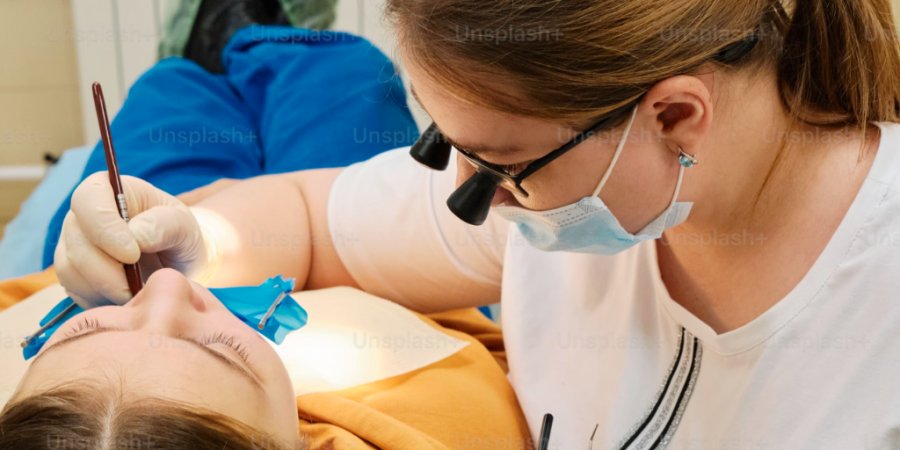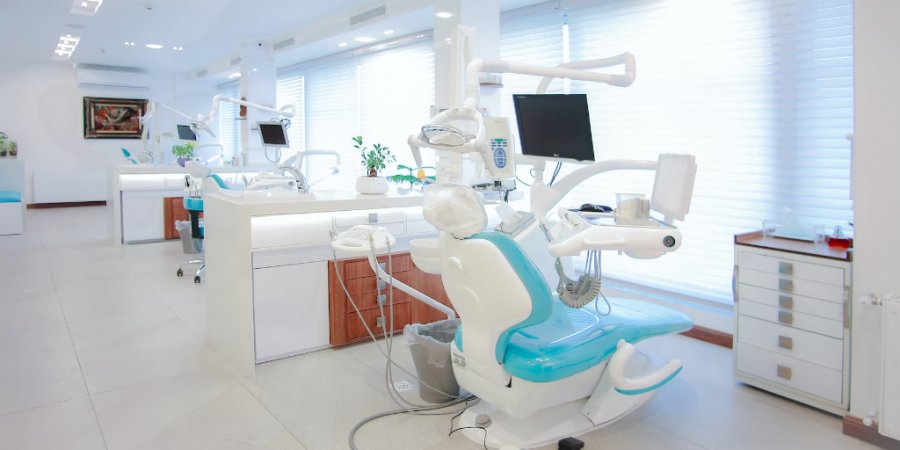Dentistry in Germany: A Comprehensive Guide

Germany's reputation for excellence in healthcare extends to its dental care system. With a blend of highly-qualified professionals, cutting-edge technology, and patient-centered care, dentistry in Germany stands as a model for many countries around the world. In this comprehensive guide, we'll explore the various facets of dentistry in Germany, from the profession itself to the education system, dental care, and more.
The Dental Profession in Germany

A Respected Career Path
Dentistry is not just a job in Germany; it's a highly respected profession. The country's emphasis on oral health and hygiene has led to a large number of patients seeking dental care, creating a thriving industry for dental professionals.
Salary and Earnings
The average salary for dentists in Germany is around €60,000 per year, which translates to about $75,000. This figure is comparably high when viewed against other countries. Dentists also have the opportunity to earn additional income through private practice and consulting work, making it an attractive career choice for many.
Diverse Opportunities
Dentists in Germany can work in various settings, including hospitals, clinics, private practices, and even in the rapidly growing technology sector. This diversity allows dentists to choose a path that aligns with their interests and expertise.
Education and Training
Becoming a dentist in Germany requires a four-year degree in dental medicine, followed by three years of clinical training. Dental offices in Germany are often small and family-owned, fostering close personal relationships with patients. This personal touch is a hallmark of German dental care and is highly valued by both practitioners and patients.
Dental Specializations
Germany offers a wide range of dental specializations, including pediatric dentistry, implantology, and more. After completing their training, dentists may work as assistant dental physicians or in specialized positions, allowing them to focus on areas they are passionate about.
Dental Care System in Germany

Overview
Germany's dental care system is renowned for its quality and efficiency. Dentistry is semi-privatized in the German healthcare system, meaning that patients may have to contribute a portion of the costs for dental treatment, depending on their insurance type.
Statutory Health Insurance
Under statutory health insurance, simple, medically-necessary treatments are fully covered. This includes dental check-ups every six months, teeth cleaning once per year, and basic fillings. More complicated or cosmetic dentistry may require partial or full payment by the patient.
Private Health Insurance
Those with private health insurance may expect varying levels of reimbursement for dental care, depending on their individual plan. Some plans may even offer 100% coverage for major dental work, providing flexibility and options for patients.
Additional Dental Insurance
For those looking to supplement their coverage, additional dental insurance is available. This can be particularly beneficial for those seeking more extensive or cosmetic treatments.
Emergency Dentistry
In case of emergencies, patients can find an emergency dentist on the Zahnärztlicher Notdienst website. This ensures that urgent care is always accessible, reflecting Germany's commitment to patient well-being.
Dental Check-up Costs
Routine dental procedures, including two annual check-ups, teeth cleaning, and basic fillings, are covered by most health plans. However, more expensive or extra treatments may require additional payment, with at least partial reimbursement from the provider.
Studying Dentistry in Germany

Germany is home to many renowned dental schools, offering students a choice of different specialties. Studying dentistry in Germany is considered prestigious, but it also comes with high tuition fees. The decision to travel and study there is a significant investment, but the rewards can be substantial.
Tuition and Fees
If you want to study dentistry in Germany, you'll need to be prepared to pay a high tuition fee. However, the career scope and opportunities in dentistry are considerable in Germany, making it a worthwhile investment for many.
Dental Schools and Specialties
Germany's dental schools are known for their excellence and innovation. Students can choose from a number of different specialties, allowing them to focus on areas that interest them most. From pediatric dentistry to implantology, the options are diverse and cutting-edge.
Career Opportunities
German dentists are widely considered to be some of the best in the world. Graduates from German dental schools often find opportunities in private practices, public health clinics, universities, and even in research and development sectors.
Comparison with Other Countries
A Global Leader
Germany's dental care system stands out on the global stage for its high level of training, good salary, and broad career scope. The country's commitment to quality care, patient satisfaction, and professional development places it among the best in the world.
Salary and Benefits
Compared to other countries, German dentists typically earn a good salary, with opportunities to expand their income through private practice and other avenues. The financial rewards, coupled with the satisfaction of providing top-notch care, make dentistry in Germany an attractive profession.
Education and Training
Germany's dental education system is rigorous and comprehensive. The combination of theoretical knowledge and practical training prepares students to excel in various dental specializations. This robust education contributes to Germany's reputation for producing some of the world's best dentists.
Frequently Asked Questions (FAQs) about Dentistry in Germany

Is Germany good for dentistry?
Yes, Germany is renowned for its excellence in dentistry. With highly qualified professionals, cutting-edge technology, and a patient-centered approach, Germany's dental care system is considered one of the best in Europe and globally.
Is a German dental degree valid in the USA?
A German dental degree may require validation and additional examinations to be recognized in the USA. It's advisable to consult with the relevant dental licensing authorities in the U.S. state where you intend to practice to understand the specific requirements.
Can an American dentist work in Germany?
Yes, an American dentist can work in Germany, but they may need to fulfill certain requirements, such as validating their degree, passing specific examinations, and obtaining the necessary work permits and licenses. It's recommended to consult with German dental authorities to understand the exact process.
Do dentists in Germany speak English?
Many dentists in Germany, especially in urban areas and larger cities, speak English. It's common for dental professionals who cater to international patients to have English-speaking staff. However, it may vary from practice to practice, so it's a good idea to inquire in advance.
What is the average salary for dentists in Germany?
The average salary for dentists in Germany is around €60,000 per year. This figure can vary based on experience, specialization, and location within the country.
How can I find an emergency dentist in Germany?
In case of dental emergencies in Germany, you can find an emergency dentist on the Zahnärztlicher Notdienst website. This ensures that urgent care is always accessible, reflecting Germany's commitment to patient well-being.
What types of dental insurance are available in Germany?
Germany offers various types of dental insurance, including statutory health insurance, private health insurance, and additional dental cover insurance. Coverage and reimbursement levels depend on the specific plan and individual needs.
How can I study dentistry in Germany?
Studying dentistry in Germany requires enrollment in one of the country's renowned dental schools. The education pathway typically involves a four-year degree in dental medicine, followed by three years of clinical training. Tuition fees and admission requirements may vary, so it's advisable to consult with the specific institution you're interested in.
Are dental check-ups covered by insurance in Germany?
Yes, routine dental check-ups are typically covered by both statutory and private health insurance in Germany.
What are the specializations available in dentistry in Germany?
Germany offers a wide range of dental specializations, including pediatric dentistry, implantology, orthodontics, and more.
How to choose the right dental insurance in Germany?
Choosing the right dental insurance in Germany depends on individual needs and preferences. Options include statutory health insurance, private health insurance, and additional dental cover insurance. Consulting with an insurance expert or using comparison tools can help in making an informed decision.
Conclusion
According to dental experts who write for us on dental health, dentistry in Germany is more than a profession; it's a symbol of excellence, innovation, and patient-centered care. From the diverse opportunities available to dental professionals to the world-class education system, Germany sets a high standard in dental care.
Whether you're considering a career in dentistry, seeking dental care, or exploring educational opportunities, Germany offers a rich and rewarding landscape. Its blend of tradition and modernity, personal touch, and technological advancement makes dentistry in Germany a field that continues to inspire and lead.
The comprehensive dental care system, the respect for the profession, and the focus on patient relationships make Germany's approach to dentistry a model worth emulating. It's a testament to the country's commitment to health, well-being, and excellence in all aspects of life.
More to Read:
Previous Posts:





